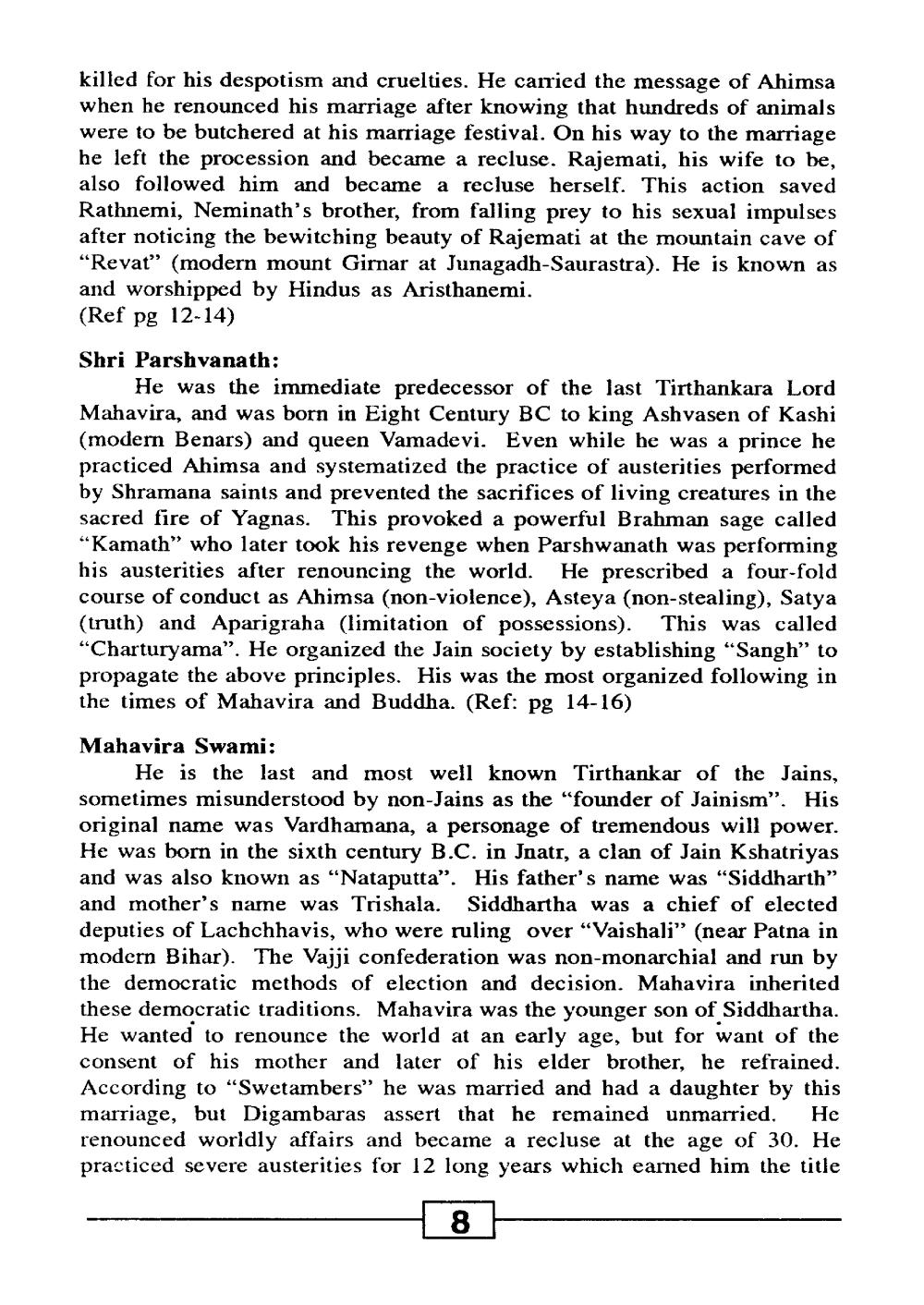Book Title: What is Jainism Author(s): T U Mehta Publisher: Umedchand and Kusumbaben Charitable Trust Ahmedabad View full book textPage 9
________________ killed for his despotism and cruelties. He carried the message of Ahimsa when he renounced his marriage after knowing that hundreds of animals were to be butchered at his marriage festival. On his way to the marriage he left the procession and became a recluse. Rajemati, his wife to be, also followed him and became a recluse herself. This action saved Rathnemi, Neminath's brother, from falling prey to his sexual impulses after noticing the bewitching beauty of Rajemati at the mountain cave of "Revat" (modern mount Girnar at Junagadh-Saurastra). He is known as and worshipped by Hindus as Aristhanemi. (Ref pg 12-14) Shri Parshvanath: He was the immediate predecessor of the last Tirthankara Lord Mahavira, and was born in Eight Century BC to king Ash vasen of Kashi (modern Benars) and queen Vamadevi. Even while he was a prince he practiced Ahimsa and systematized the practice of austerities performed by Shramana saints and prevented the sacrifices of living creatures in the sacred fire of Yagnas. This provoked a powerful Brahman sage called "Kamath" who later took his revenge when Parshwanath was performing his austerities after renouncing the world. He prescribed a four-fold course of conduct as Ahimsa (non-violence), Asteya (non-stealing), Satya (truth) and Aparigraha (limitation of possessions). This was called “Charturyama". He organized the Jain society by establishing "Sangh” to propagate the above principles. His was the most organized following in the times of Mahavira and Buddha. (Ref: pg 14-16) Mahavira Swami: He is the last and most well known Tirthankar of the Jains, sometimes misunderstood by non-Jains as the "founder of Jainism". His original name was Vardhamana, a personage of tremendous will power. He was born in the sixth century B.C. in Jnatr, a clan of Jain Kshatriyas and was also known as “Nataputta". His father's name was "Siddharth” and mother's name was Trishala. Siddhartha was a chief of elected deputies of Lachchhavis, who were ruling over "Vaishali" (near Patna in modern Bihar). The Vajji confederation was non-monarchial and run by the democratic methods of election and decision. Mahavira inherited these democratic traditions. Mahavira was the younger son of Siddhartha. He wanted to renounce the world at an early age, but for want of the consent of his mother and later of his elder brother, he refrained. According to "Swetambers” he was married and had a daughter by this marriage, but Digambaras assert that he remained unmarried. He renounced worldly affairs and became a recluse at the age of 30. He practiced severe austerities for 12 long years which earned him the title 8Page Navigation
1 ... 7 8 9 10 11 12 13 14 15 16 17 18 19 20 21 22 23 24 25 26 27 28 29 30 31 32 33 34 35 36
